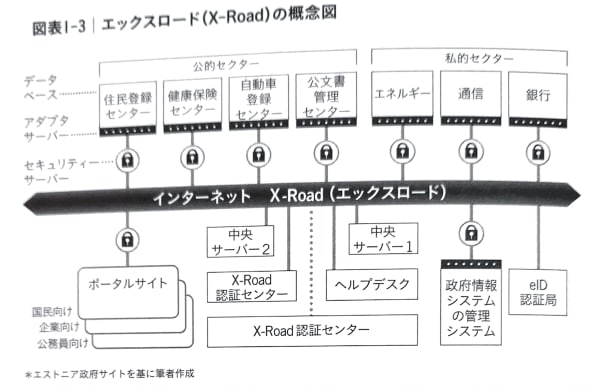Book Review: Insights from 'A Not-So-Boring Future Found in Estonia, Leading the Way with Blockchain and AI'
I’ll introduce insights gained from the book 『ブロックチェーン、AIで先を行くエストニアで見つけた つまらなくない未来』 (A Not-So-Boring Future Found in Estonia, Leading the Way with Blockchain and AI).
Only Marriage, Divorce, and Real Estate Sales Cannot Be Done Online
However, there are only three things that cannot be completed online. These are "marriage," "divorce," and "real estate sales." This is a famous phrase when discussing Estonia's e-government. Why can't these three things be done? Real estate sales involve major financial decisions. Marriage and divorce have the reason of "not rushing into emotional decisions." Indeed, if couples could divorce online on a whim, some would surely regret it later. Conversely, the fact that everything else can be done online shows how efficient it is. Figure 1-1 on the next page summarizes the main history of digitization so far.
? The reason Estonia doesn’t allow “marriage,” “divorce,” and “real estate sales” to be completed online - prioritizing impact over efficiency by keeping them as offline procedures - seems applicable to various aspects of software development.
No Need for Massive Databases. The "Reverse Thinking" of Connecting As-Is
? The X-Road approach is a good example that should be incorporated into future software development design.
As Long as Data Is Protected, There's Nothing to Fear
What if the country is invaded and occupied? This is a difficult theme for Japanese people to imagine, but Estonians have been confronted with this question. One answer they came up with is the idea that "even if territory is taken and citizens are scattered, the country can be rebuilt as long as citizen and national data exist."
? When creating a fully remote tech company, I want to design toward achieving a state where “as long as data is protected, there’s nothing to fear.”
That’s all from finishing reading 『ブロックチェーン、AIで先を行くエストニアで見つけた つまらなくない未来』 from the Gemba.

